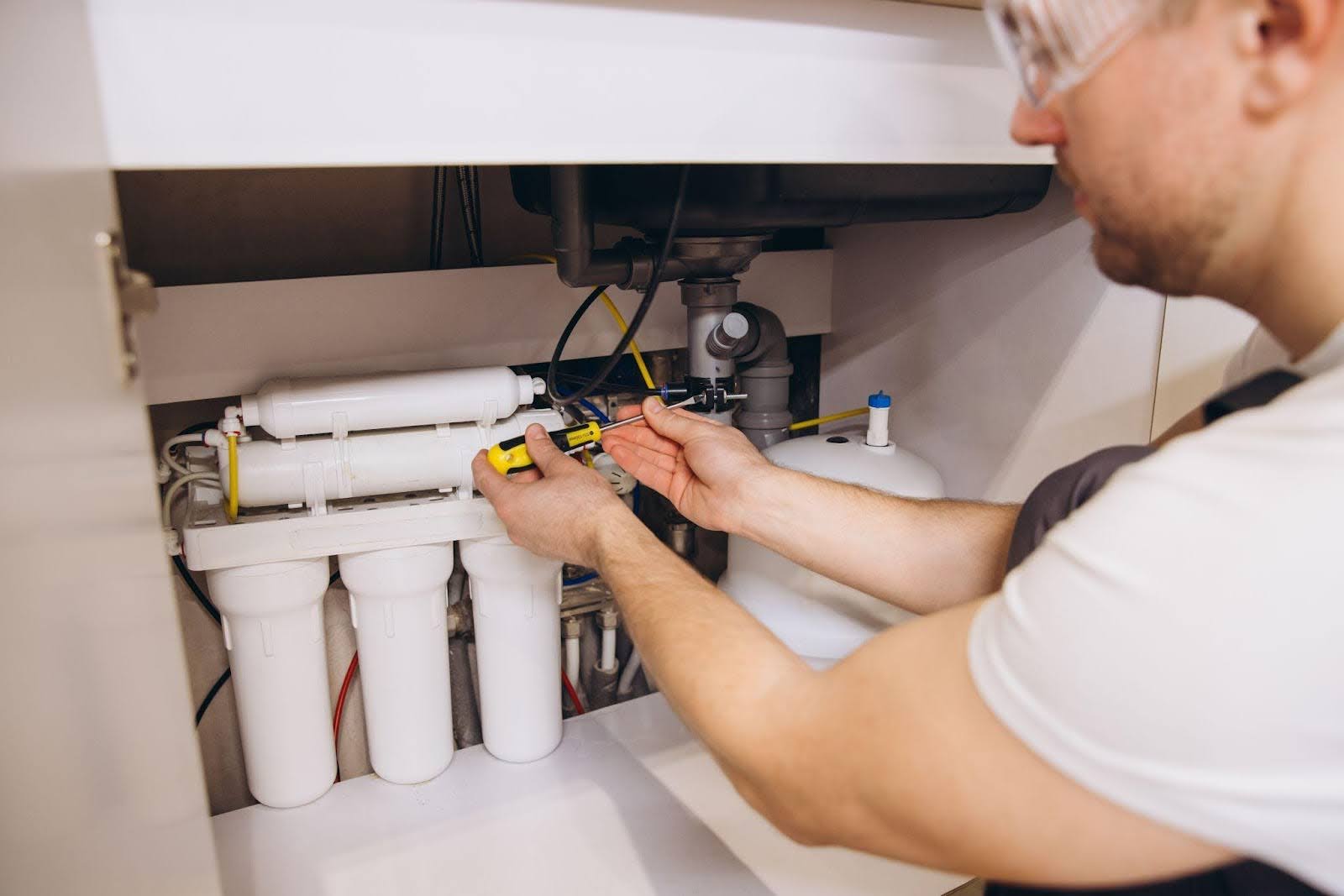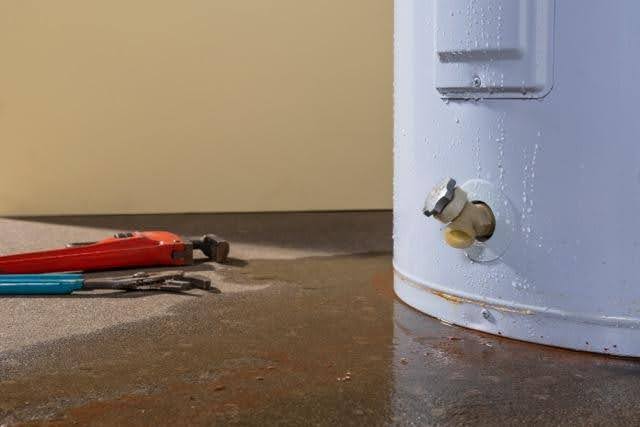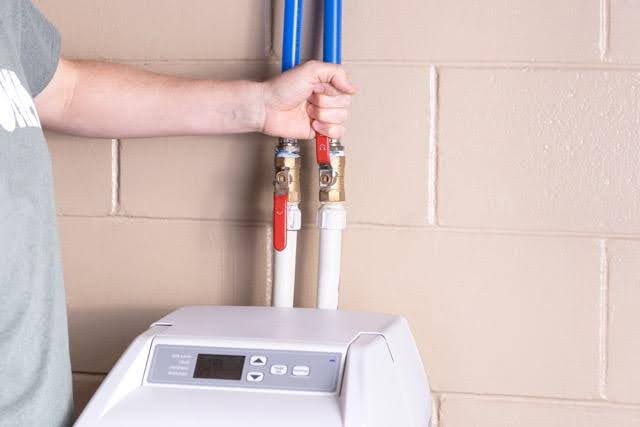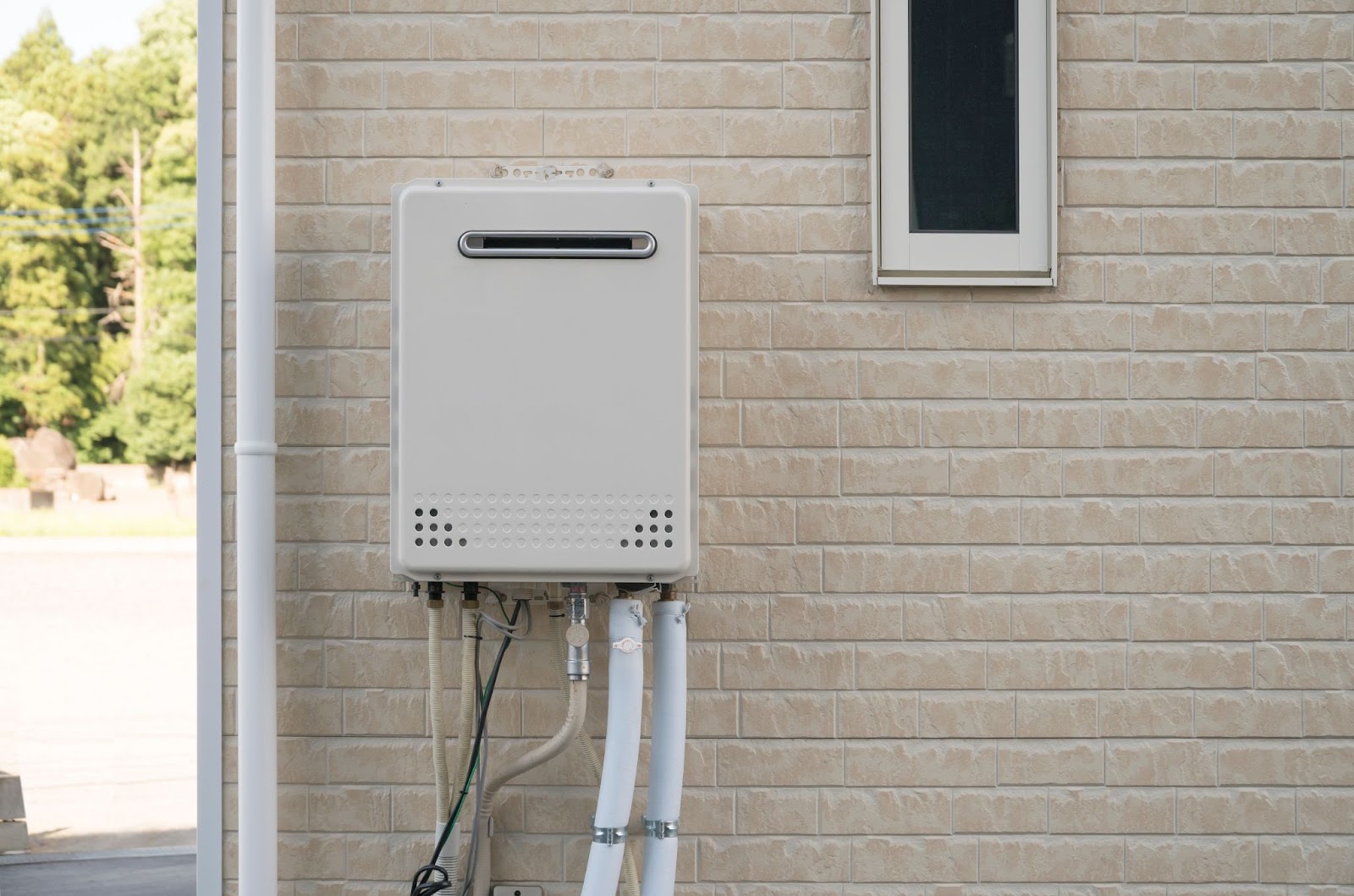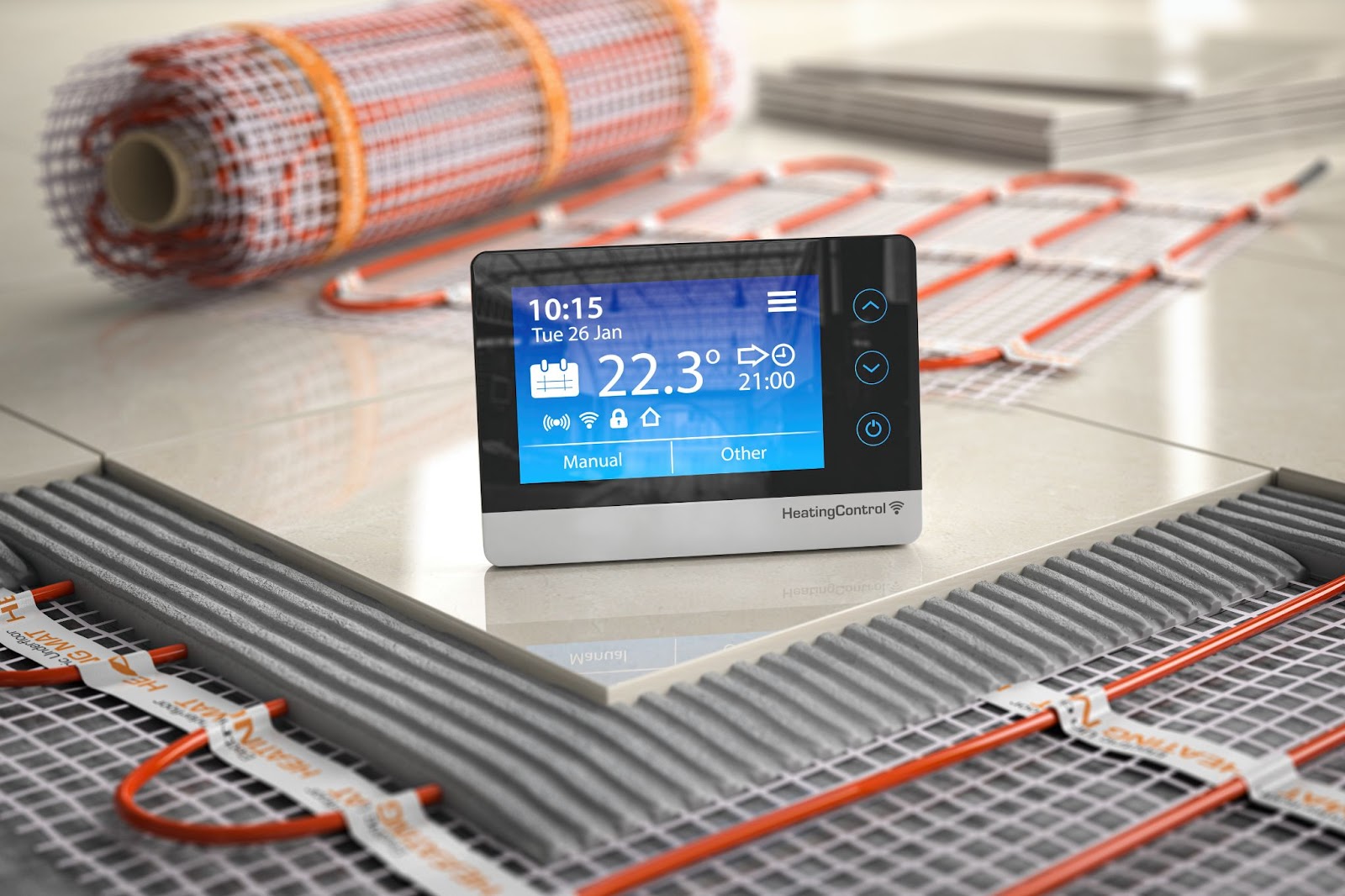Choosing the right filtration system makes a big difference in improving your home’s water quality.
Two popular options are the under sink water filter and the whole house water filtration system. Each serves a unique purpose, from delivering cleaner drinking water at a single tap to filtering all the water throughout your home.
But how do you know which fits your needs, lifestyle, and budget better?
In this blog, we’ll break down the pros and cons of each system, help you understand their differences, and guide you toward the right water filter installation for your home. Whether you’re looking for better-tasting water or full-home protection, we have the insight to help you decide.
What is an under sink water filter?
An under-sink water filter is a compact, targeted water filtration system installed directly beneath your kitchen sink. Its primary purpose is to deliver clean, great-tasting water from a single faucet, typically your main tap for drinking and cooking.
These systems work by filtering water right before it exits the faucet, removing common contaminants like chlorine, lead, sediment, and certain bacteria, depending on the type of filter you choose.
Under sink water filters are a popular choice for households looking for a simple, affordable solution to improve tap water quality without treating the entire home’s water supply. They typically include one or more filter cartridges that need to be replaced periodically and are relatively easy to access.
Thanks to their discreet installation and efficient performance, these systems have become a go-to option for homeowners wanting to upgrade their drinking water without committing to a full water filter installation for the whole house.
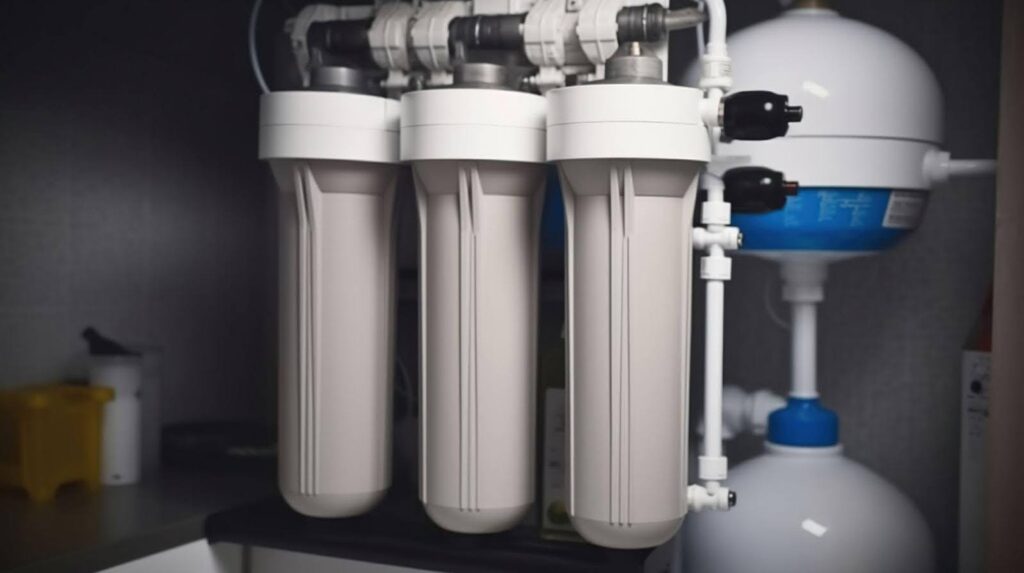
What is a whole house water filtration system?
A whole house water filtration system filters all the water that enters your home, not only the water from a specific faucet.
Installed at the main water line — also known as the point of entry — this system treats every drop of water used throughout the house, including in sinks, showers, toilets, washing machines, and dishwashers. It’s a comprehensive solution for households looking to improve water quality.
Depending on your specific needs and water source, these systems target various contaminants. Common types of filtration include sediment removal, chlorine reduction, heavy metal filtration, and even water softening.
By installing whole house water filtration, you protect plumbing and appliances from buildup, enjoy cleaner water for bathing and laundry, and extend the life of fixtures and systems exposed to hard or contaminated water.
Although a whole house water filter installation requires more space, planning, and investment than an under sink system, it offers the benefit of cleaner, healthier water from every tap in your home. It’s ideal for families who want complete peace of mind about their water quality.
Pros and cons of under sink water filters
Pros
Targeted filtration for drinking water
These systems focus on the tap you use most for drinking and cooking, providing clean, high-quality water right where you need it.
Affordable installation and maintenance
Compared to whole house systems, under sink water filters are more budget-friendly to purchase and install. They’re a great entry-level option for improving water quality.
Compact and space-saving
Installed under the kitchen sink, these systems don’t take up much room and are neatly tucked away from sight.
Easy to use and maintain
Replacing filters is usually quick, and most systems don’t require professional servicing once installed.
Doesn’t affect whole-home water pressure
Since the filter only impacts one faucet, there’s no risk of reduced water pressure throughout the home.
Cons
Limited to a single tap
You only have filtered water from the sink with the filter, leaving the rest of your home’s water untreated.
Not ideal for bathing or laundry
This type of filter will not help if you’re concerned about chlorine or other irritants affecting your skin or clothing.
May miss certain contaminants
Depending on the model, some under sink systems may not filter out all pollutants, especially if your water has complex issues.
Needs frequent filter changes
To maintain performance, you’ll need to stay on top of regular filter replacements, typically every six to 12 months.
If your main goal is clean, safe drinking water at the kitchen sink, an under sink water filter offers a simple and cost-effective solution.
Pros and cons of whole house filtration systems
Pros
Filters all the water in your home
Every tap — kitchen, bathroom, shower, laundry, and even outdoor spigots — dispenses filtered water, protecting the home from contaminants.
Improves water quality for bathing and laundry
Whole house filtration systems reduce chlorine, sediment, and other impurities that can irritate skin or damage clothing and linens.
Protects plumbing and appliances
By removing minerals, rust, and other debris, whole house systems help prevent buildup and corrosion in pipes, fixtures, and appliances, extending their lifespan.
Customizable to your needs
Many systems offer multi-stage filtration or water softening features, allowing you to tailor the system based on your local water quality and household concerns.
Convenient and low maintenance
Most high-quality systems require infrequent filter changes and minimal hands-on upkeep once professionally installed.
Cons
Higher upfront cost
These systems are significantly more expensive than under sink options and often require professional water filter installation.
Installation complexity
A whole house filtration system must be installed at your main water line, which may require structural changes or plumbing modifications.
May reduce water pressure
If not properly sized for your home’s water usage, the system can restrict flow and reduce pressure throughout the house.
Doesn’t always improve taste
Some whole-house systems prioritize removing sediment and chlorine over enhancing taste, so pairing with an under-sink water filter for drinking water may still be necessary.
A whole house water filtration system is a wise investment for long-term water quality and home maintenance, especially for families with specific health concerns or poor-quality municipal or well water.
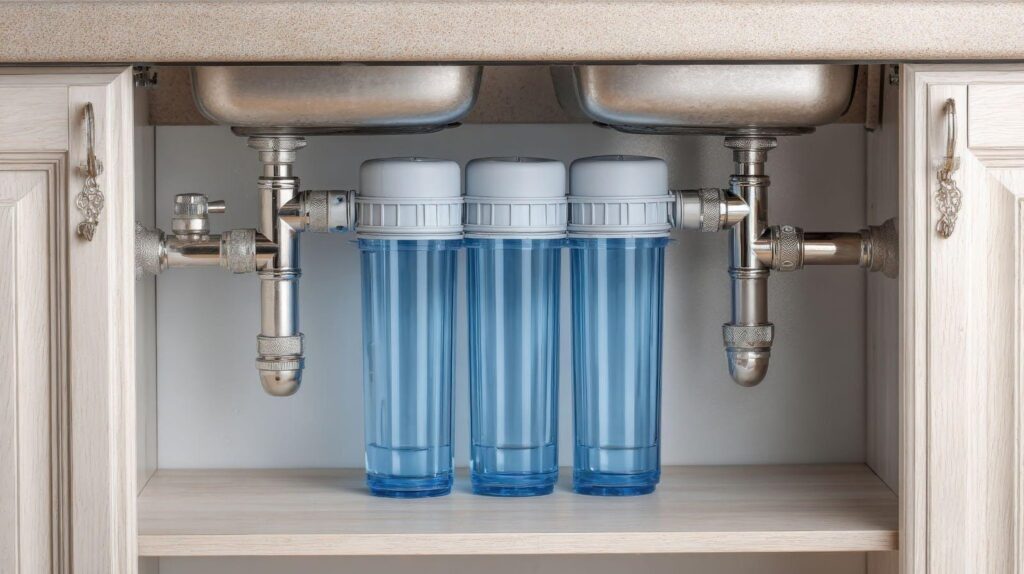
Which option is right for you?
Choosing between an under sink water filter and a whole house water filtration system depends on your household’s specific needs, water quality concerns, and budget.
If your primary goal is to improve the taste and safety of your drinking and cooking water, an under sink system is a practical, affordable choice. It’s ideal for renters, smaller households, or those who want better water at the kitchen tap without a major installation.
On the other hand, if you’re looking for a more comprehensive solution that treats all the water entering your home, a whole house system offers wider protection.
This option is especially beneficial for homeowners with hard water, sediment issues, or chlorine-heavy municipal water, and it helps extend the life of your plumbing and appliances.
In some cases, the best solution may be combining both systems: a whole house filter for general water quality and an under sink filter for enhanced drinking water.
No matter which direction you go, professional water filter installation ensures your system runs safely and efficiently. If you’re unsure which system fits your needs, consulting a licensed plumber can help you make the most informed decision.
Get your water filtration system from Salisbury Plumbing
Ready to enjoy cleaner, healthier water in your home? Whether you’re looking for an under sink water filter or a whole house water filtration system, the experts at Salisbury Plumbing are here to help.
We’ll explain your options, recommend the best system for your needs, and handle the entire water filter installation process with precision and care. Don’t leave your water quality to chance — contact Salisbury Plumbing today for professional, reliable water filtration solutions you can trust.


